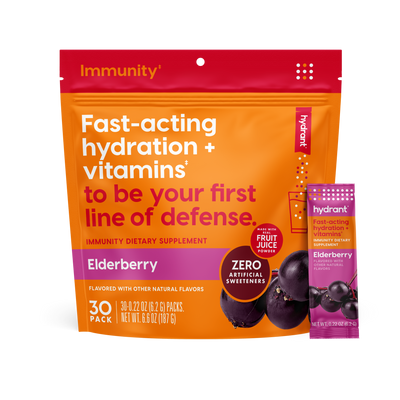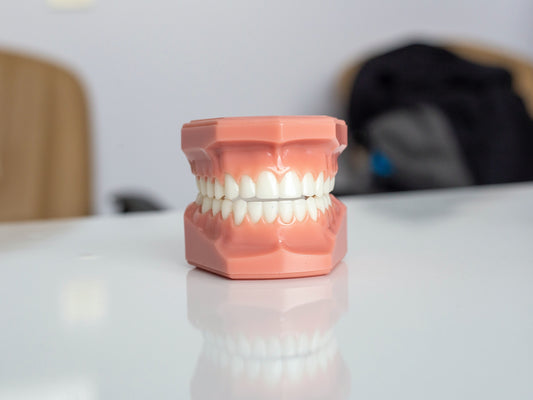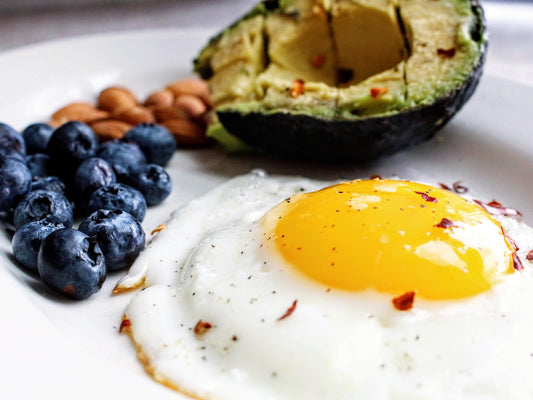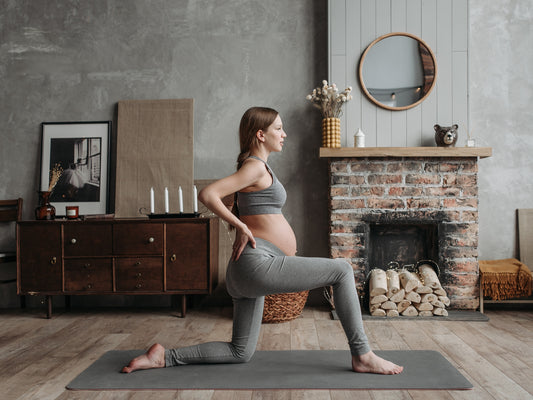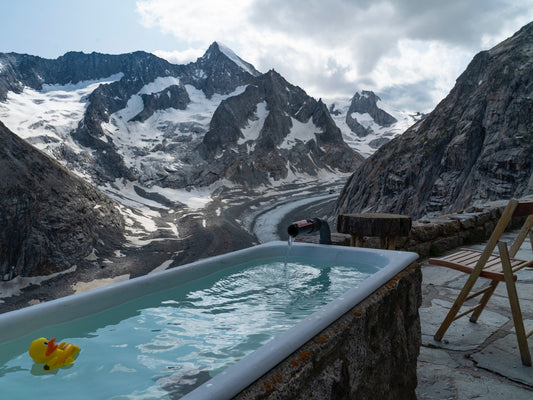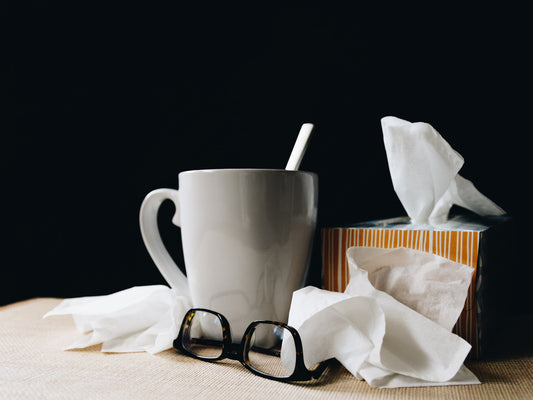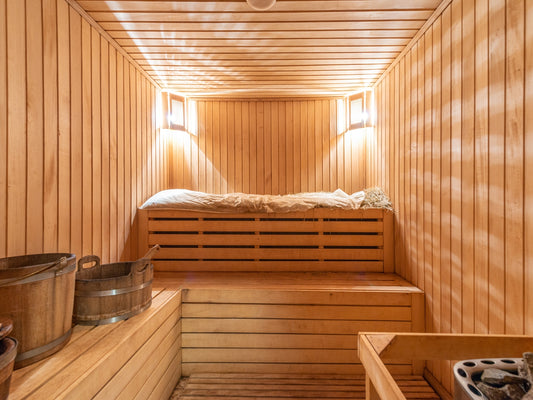Let's get right to it.
Heat exhaustion occurs when your body overheats and is often marked by several symptoms.[i]
The common symptoms of heat exhaustion include:
- Dizziness
- Fatigue
- Profuse Sweating
- Rapid or slow pulse
- Headache
- Muscle cramps
- Nausea

While heat exhaustion is a serious condition in itself, if you don't take proper action to treat yourself, heat exhaustion can develop into a more severe heat stroke condition. According to the Mayo Clinic, heat exhaustion is one of three heat-related illnesses with muscle cramps being the least dangerous, and heat stroke the most deadly.[ii]
So, what causes heat exhaustion?
Heat Exhaustion Causes
People who end up dealing with heat exhaustion may have incomplete knowledge as to what causes the condition. Understanding all of the causes of heat exhaustion can help you avoid being afflicted by the state in the first place.
We mentioned that heat exhaustion is a result of your body overheating, but how does your body end up overheating?
Sweating or Inability to Sweat
Your body perspires to get rid of extra internal body heat. Warm weather causes people to become dehydrated at a more accelerated rate, which reduces a person's ability to produce sweat. When a person sweats during warm weather, it's more difficult for the air to absorb sweat produced, which further limits the body's essential cooling mechanism.[iii] When your body can't sweat, your chances of developing heat exhaustion rise.
Common Causes of Heat Exhaustion
Heat exhaustion mostly develops during physical activity in warm weather, but many additional causes can put you at risk for this heat-related illness. As we go through several common catalysts for heat exhaustion, keep an eye out to see if your lifestyle makes you more at risk for fostering some of these causes.[iv]
Common Cause #1: High Heat Index
A high heat index is one of the biggest causes of heat exhaustion.
Why?
Heat indexes account for both the outdoor temperature and the humidity. High humidity levels put you at an increased risk for developing heat exhaustion since your body isn't able to evaporate sweat as quickly in the humid air.
When evaluating the forecast, be cautious of a heat index that's higher than 91 degrees.[v]
Common Cause #2: Taxing Physical Work
This one most likely won't come as a surprise, but it's worth noting as outdoor workers such as construction workers and farmers are the most susceptible to heat exhaustion due to their occupations. If you're working long hours outside during warm summer months, try to take regularly scheduled breaks to hydrate and work during the morning or late evening hours if you have the ability.
Experts recommend that outdoor workers exposing themselves to high temperatures hydrate every 15 minutes on average. Portable water bottles make hydrating more accessible so you can maintain your workflow.[vi]
When you consume food, try to eat smaller, more frequent meals. Eating a large meal or overeating before a day of physical work in warm weather can lead to nausea and possibly vomiting. When you vomit, you become dehydrated faster, so do your best to take it slow.
If you work a physically demanding job outdoors, the way you dress has a significant impact on whether your body will overheat. Try to avoid wearing dark shades of clothing as lighter clothing shades naturally repel sunlight.
Sunglasses, wide-brimmed hats, and waterproof sunscreen will go a long way in helping you stay comfortable while working. Make an effort to purchase waterproof sunscreen as non-waterproof varieties will come off your skin when you begin to sweat.
Common Cause #3: Underlying Conditions
Diabetes is a case of an underlying condition that can make a person more prone to developing heat exhaustion.
People with diabetes become dehydrated at a more rapid rate when exposed to heat. When a person doesn't drink enough proper liquids in warm weather, their blood glucose levels rise.[vii] After a person's blood glucose levels rise, urination becomes more frequent, which creates dehydration.
High temperatures and humidity can affect how a person's body utilizes insulin. If you have diabetes, testing your blood glucose more often than you usually would is a smart strategy to fight heat exhaustion.
Common Cause #4: Medications
Some medications can increase your probability of experiencing heat exhaustion.[viii]

Specific problems that can occur due to medications include:
- Interrupted temperature regulation
- Higher levels of fluid loss
- Increased heat production
If you're prescribed medication, it's best to consult your doctor to see if you're able to exert yourself physically in warm temperatures to ensure your safety.
Common Cause #5: Age
Age is another example of a seemingly obvious cause of heat exhaustion.
But there's more to the story.
You might think that the elderly demographic is the only age group that is more prone to heat exhaustion, but young people under the age of four are equally in danger.
The reason?
Children under four haven't fully developed the ability to naturally regulate their internal body temperature.
Before we move onto treatments for heat exhaustion, let's rattle off the rest of the common causes for this heat-related illness:
- Heart disease
- Obesity
- Liver or kidney conditions
- High blood pressure
Treatments for Heat Exhaustion
 When the symptoms of heat exhaustion are spotted, it's essential to act quickly.
When the symptoms of heat exhaustion are spotted, it's essential to act quickly.
The good news is that once you begin to treat heat exhaustion, symptoms usually start to subside after 30 minutes[ix]. If 30-60 minutes have gone by and you or the person your treating's condition hasn't improved, call for medical assistance.
Once a person begins to recover, the person mustn't return to normal activities immediately. Waiting one or two full days should be enough rest to get back up to speed.
Transporting a person dealing with heat exhaustion to a cool place, such as an air-conditioned room, is ideal. If no air conditioning or fans are available, areas with shade are a reliable second option. Once a heat exhausted person is out of high-temperature environments, supply them with water and cold items such as ice packs or cold towels.
Hydration plays a vital role in helping a person avoid heat exhaustion. It's vital to hydrate all day when exposing yourself to warm temperatures as establishing and maintaining hydration is the name of the game.
If you're looking for a rapidly hydrating liquid to take at critical points of your day, consider using Hydrant.
Fight Heat Exhaustion with Hydrant
Existing through an easy to use powder mix, Hydrant contains the perfect balance of electrolytes to hydrate you quickly along with a splash of flavor that creates a beverage more exciting than water.
Hydrant's taste isn't derived from artificial sweeteners either. Instead, we add real fruit juice powder to Hydrant’s classic, refreshing flavor. To get the most out of your Hydrant, mix with cold water (8 ounces for a more concentrated flavor, 16 if you prefer a lighter flavor).
If you're looking to fight heat exhaustion, you know by now the importance of responding quickly. Hydrant provides rapid absorption capabilities to users through low osmolality and just the right amount of sugar.
Low osmolality creates fewer particles per volume unit within the liquid, allowing Hydrant to travel down the body's osmotic gradient faster. The result is accelerated water absorption.
Hydrant's seven grams or less of cane sugar activates the body's sodium-glucose transport mechanism in the small intestine. The sodium-glucose transport mechanism acts as a pump to transport electrolytes and water into the bloodstream faster for quicker absorption.
Dealing with heat exhaustion isn't easy, but taking Hydrant to avoid it is.












